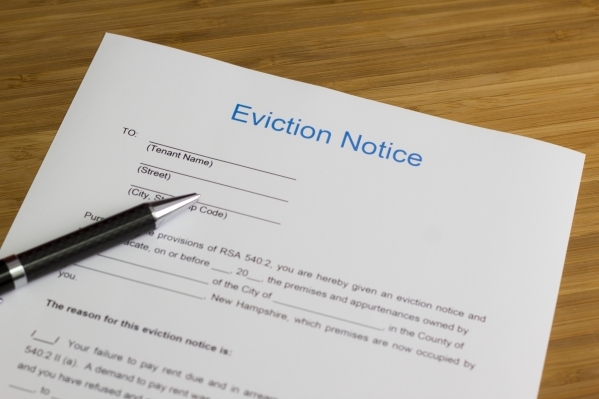Tenants rights

Tenants have quite a few rights when it comes to a landlord trying to toss them out. Even Gov. Jim Gibbons had a hard time evicting the First Lady from the Governor’s Mansion during their 2008 divorce.
When can — and can’t — a landlord evict a tenant?
“Like most legal questions,” attorney Robert H. Hernquist said, “the answer is, ‘It depends.'”
Evictions for nonpayment can be pretty cut-and-dry, but evictions for nuisance, damage or illegal use are a little more complex.
“An eviction for any of these types of reasons must involve egregious and repetitive conduct — a landlord is probably not going to be successful if he tries to evict a tenant for accidentally breaking a doorknob or having a dinner party that draws one noise complaint,” Hernquist said. “On the other hand, he most likely would prevail if the tenant is using the premises as a meth lab or practicing chainsaw sculpture.”
But either way, there are proper forms and a legal process that can take time.
“I have seen tenants stay a year rent-free,” attorney Andrew Pastwick said. “Bankruptcy prevents evictions.”
First, a landlord must serve a proper notice. For unpaid rent, it’s a Five-Day Pay or Quit Notice, which means pay up or get out. For a nuisance — a legal term — it’s a Three-Day Nuisance Notice.
Within that timeframe, the tenant has the option to respond in Justice Court to the notice. If he does not, the landlord must then file a complaint to start the eviction process. If the tenant did not file a response and request a hearing, the judge can grant the eviction.
“Until the eviction is completed and the tenant is locked out, the landlord cannot change the locks or bar entry to the property or turn off the utilities — if the utilities are in the landlord’s name,” said Ed Kania, president of Southern Nevada Eviction Services.
If served with a notice, the tenant has three options, according to Pastwick: 1. Move 2. Pay the rent or 3. File an answer.
If the tenant requests a hearing during the original notice period (five or three days depending on the notice), the court must grant him one-— regardless of his reasoning.
“We often see a tenant admit in his answer that he doesn’t have the rent and won’t be able to pay the rent,” Kania said. “The court still has to give him a hearing which delays the lock out for, potentially, several weeks. In addition, the court often gives the tenant extra time — 10-14 extra days — to move out after the hearing.”
So how long before a tenant is out on the street?
After the notice period, if there is no tenant response, roughly two-three weeks. If a hearing is scheduled, it could take an additional two to three weeks.
“The landlord does not have many rights in this process,” Kania said. “The tenant is obligated to pay rent during the pendency of the eviction process but often does not and there is little that the landlord can do except to start an entirely new eviction process.”
And, Kania warns, the courts are strict about landlord paperwork. All the ‘t’s need to be crossed. The landlord can file the forms himself, but must be thorough.
Courts tend to be more lenient with tenants, according to Kania, who says they can still successfully represent themselves but should “make an effort to learn as much as possible by studying the lease and other documents, reviewing the relevant statutes online and exploring free resources. “
Keep in mind that eviction proceedings are public records, often must be declared on future rental applications, and can affect credit scores and the ability to obtain Section 8 housing vouchers.
“Since the eviction process does not give the landlord a monetary judgment (it just removes the tenant from the property) and it is often difficult or impossible to track down an ex-tenant to sue them in small claims, the landlord often suffers a huge financial loss while the tenant moves on to their next rental,” Kania said.
What if a renter can’t pay? He advises tenants to broach the subject with landlord and work out a mutually beneficial payment arrangement.
“The eviction process is costly and takes time. Many landlords would rather work with their tenants than immediately filing an eviction. We find that many landlords begin the process because the tenant refuses to talk to the landlord about the situation,” he said.
But, he advises landlords, don’t be too forgiving. If a dodgy tenant avoids you — and the rent — it might just delay the inevitable. Landlords don’t want to wait too long to file for eviction and let a tenant live rent-free for months.
Hernquist says simply: “Take it seriously. Do your research Understand the substantive issues and the procedure, and don’t miss any deadlines.”